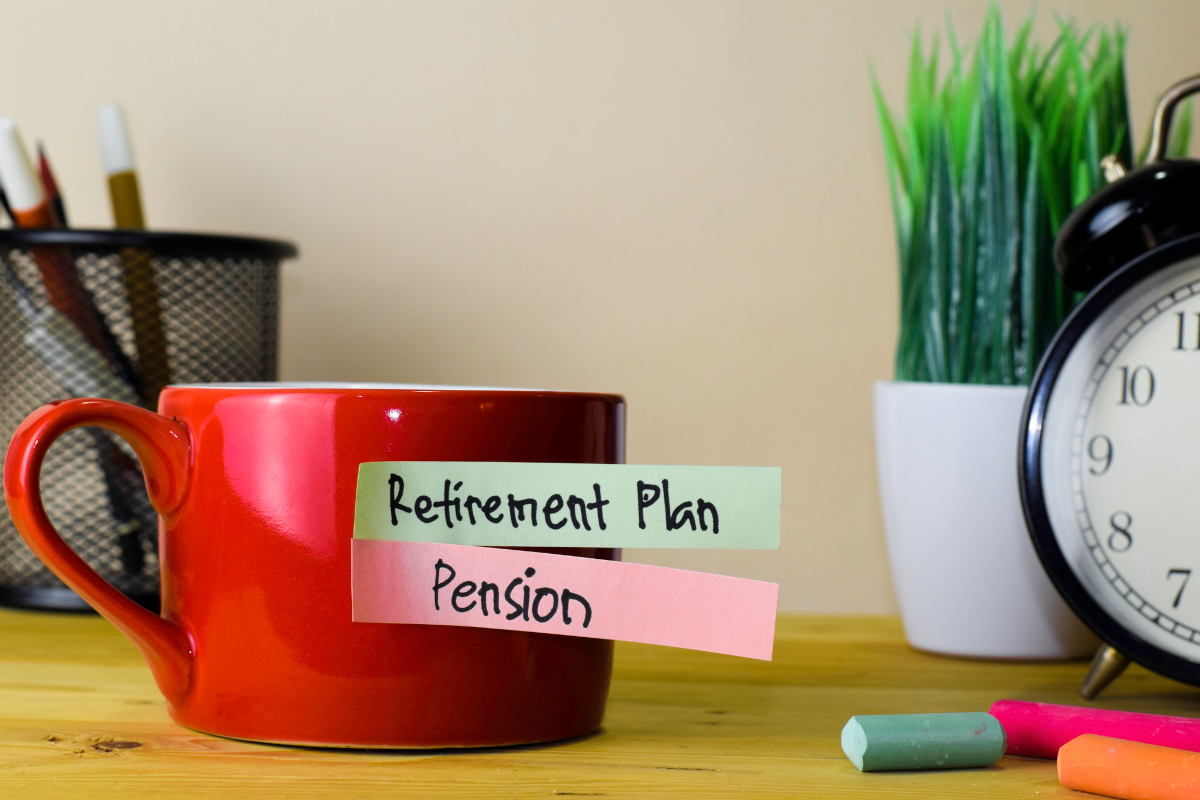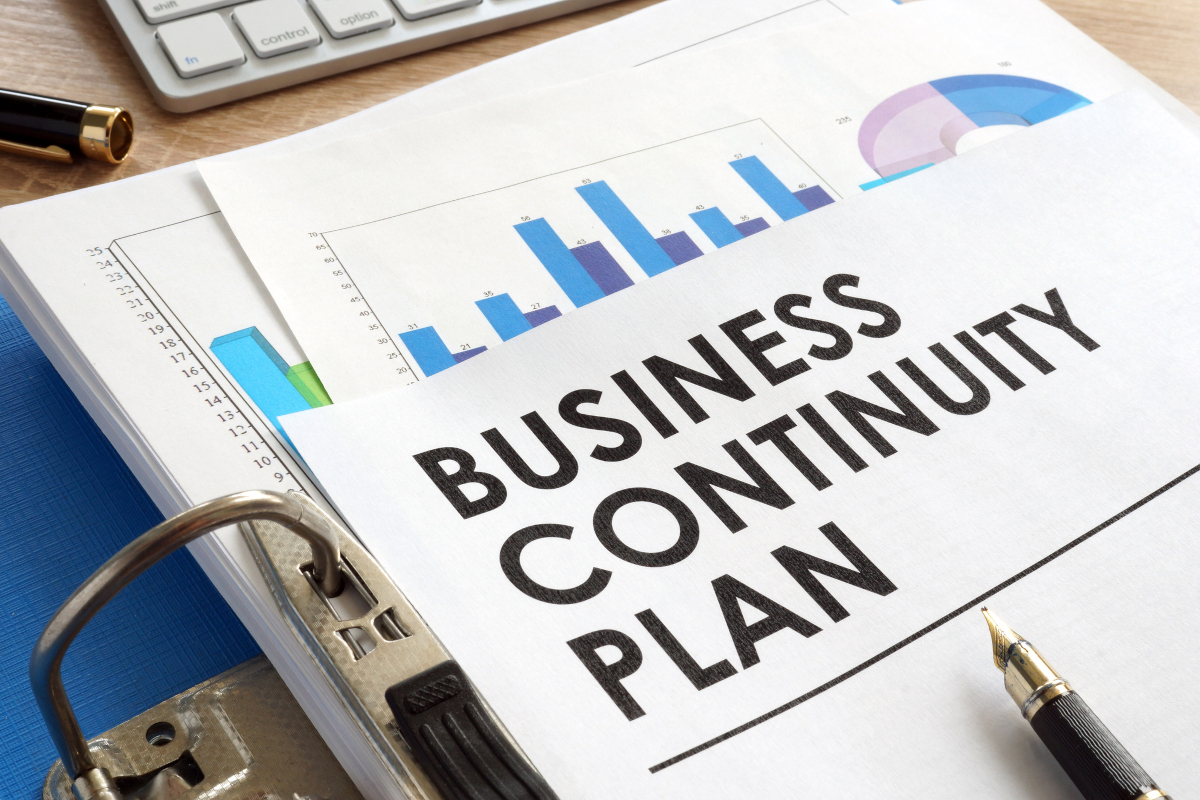Running a business involves multiple moving parts, and one of these is planning for retirement and developing a business exit strategy – which can often take a back seat amongst day-to-day operations.
It may not sound exciting, but securing your long-term well-being is something every business owner should prioritise.
Unfortunately, statistics show that 54% of self-employed individuals still need to set aside retirement savings, and only 32% are saving into a private or workplace pension. These numbers are not encouraging, so we’re here to provide helpful advice and tips that empower and educate business owners on retirement plan options.
Retirement planning should evolve over time, as building a financial cushion to safeguard your retirement will not happen in a few months. This article will cover small business owner retirement strategies and provide advice on succession planning.

Planning your exit strategy
If you plan on using the proceeds from selling a business to fund your retirement plans, then having an effective exit strategy in place is crucial.
According to the Pensions and Lifetime Savings Association, only 23% of people are confident in knowing how much they need to save. Research shows that to live a comfortable retirement, you’ll need around £33,000 - £47,500 a year.
With this in mind, you can start planning income goals and decide when the best time to sell your business will be.
Financial planning for business owners is essential, especially when it comes to retirement. To help you start this process, here are some steps you can take to develop an effective business exit strategy:
Set long-term goals
Every retiring business owner will have different goals. You may want to pursue a lavish retirement without financial worries, or you may want to be economical with your retirement savings plan.
Either way, you’ll need to set small business goals to get there. This will help you keep track of your revenue and growth against inflation, set up contingency plans for challenging months (we’ll get to this later), and help you decide when the best time to sell your business will be.
Remember, selling your business when it’s profitable and growing is a strategic move.
Different ways to exit your business
Retirement planning also includes developing an exit plan, and there are various ways you can exit your business to maximise value and promote a smoother transition. The pros and cons of each strategy will vary:
- Selling to a family member: While this may be an accessible and more personal exit strategy, it’s crucial that you understand the potential sting of Inheritance Tax.
- Management buy-out (MBO): This is an effective way to exit a business, as existing management teams understand the business on a deeper level. Of course, Capital Gains Tax will still be applicable, including the potential for depreciation recapture.
- Selling on the open market: This process can take some time, as you’ll need to go through several steps before you close the deal. You’ll also need to decide if it will be a share or asset sale. You’ll pay tax on the gains you make from the proceedings, but you can claim Business Asset Disposal Relief.
- Member’s Voluntary Liquidation (MVL): Tf your business is suffering losses and you cannot achieve profitability, you can close the business, return capital to shareholders, and liquidate the company. However, this exit strategy needs to be dealt with by a professional.
Develop a contingency plan
Setting goals and having an exit strategy are important, but you’ll also need a contingency plan to retire. Contingency plans promote a smooth transition and safeguard you and the future of your business. Here’s what you’ll need to consider:
- Plan in advance: You’ll need to address potential issues and growth opportunities several years before you retire. This will promote a seamless transition and alleviates the significant pressure of selling a business.
- Understand your financial needs: How much will you need to live a comfortable retirement? This will help you set clear financial goals so you can choose the best small business pension plan.
- Consider legal and tax implications: We recommend consulting with legal and financial experts to understand more about the implications associated with your exit strategy. This will help you optimise your financial situation and comply with complex regulations.

Seeking professional support
We strongly encourage you to consult with a team of professional advisers to guide you through your business retirement plan.
With professional expertise, you can take advantage of the best retirement plans, avoid certain taxes, and maximise the value of your business.
Without it, you could get hit with unexpected tax bills, experience unpleasant negotiations, and fail to make the most of your pension.
How to fund your retirement in the UK
There are various ways to fund your retirement plans in the UK. In this section of the article, we’ll list the best retirement plans for small businesses with employees, and for self-employed entrepreneurs. We’ll cover traditional pension schemes, and alternative ways to fund your retirement.

State Pensions
This is the pension you’ll receive from HMRC through your National Insurance (NI) contributions. You’ll need at least 10 qualifying years of NI to receive a State Pension. However, we don’t advise solely relying on a State Pension to fund your retirement.
This pension is not released automatically, so you’ll need to request it upon your retirement.
Defined contribution pensions
These are one of the best retirement funding plans for small business owners and self-employed individuals. Workplace pensions schemes and private pensions schemes are examples of defined contribution pensions.
They will help you build up a pot of savings to fund your retirement. How much you’ll receive upon retirement depends on your contributions, the fund’s investment performance, and tax reliefs.
Generally, you need to be aged 55 (or 57 from 2028) to take out your pension. When you retire, you can take out up to 25% of your pension pot tax-free. Thereafter, it will become a taxable income or lump sum.
SSAS
Small Self-Administered Pensions Schemes are a great retirement plan for small businesses with senior management teams. Usually, it is set up to allow several senior stakeholders of a limited company to contribute to a pot of money. These schemes are provided by insurance companies and pension providers.
SSAS are flexible; appointed trustees have the autonomy to control the scheme’s assets and investment choices.
SIPPs
A Self-Invested Personal Pension is similar to a standard personal pension. It helps you save, invest in, and grow your pension pot, but you have more flexibility with your investment choices. However, it does require hands-on management, and you may face higher charges.
Some investment options include company shares, collective investments, investment trusts, and property or land (excluding residential property).
Selling property
Owning property is a significant financial asset. If you do, you could consider selling it and downsizing. Not only will you release a substantial sum of income to fund your retirement, but you’ll also reduce your monthly bills by downsizing to a smaller, cosier home.
ISAs
Lifetime ISAs are a great retirement funding alternative for self-employed individuals and small business owners. However, you’ll need to start contributing to it before you turn 40. You need to be between the ages of 18 and 40 to open an ISA.
ISAs are a fantastic way to generate tax-efficient retirement income, as the government adds on a 25% bonus (with a maximum being £1,000 in a single tax year). Likewise, for most ISA providers, investment growth or interest is tax-free.
Defined benefit pensions
This pension scheme differs from a defined contribution pension and offers a secure income or career average salary once you retire.
This pension scheme is only applicable to individuals who work for an employer, so it may not be the best option for self-employed individuals.
FAQs

What is the best retirement plan for a business owner?
This depends on your retirement goals. Usually, any defined contribution pension or an ISA are the best retirement plans for business owners.
What is the best way to manage retirement money?
The best way to manage your retirement money is by following the 4% rule and to continue contributing to your retirement funds. In your first year of retirement, you should withdraw no more than 4% of your investment portfolio. However, this doesn’t account for lifestyle changes, inflation, or market return fluctuations. Ultimately, you need to be careful when tracking your expenses and withdrawing your investments.
Which retirement plan is best for self-employed?
The best retirement plans for self-employed individuals are private pensions, a Lifetime ISA, or a SIPP.
Can you get a pension as a business owner?
Yes, you can. If you own a limited company, you can make pension contributions from pre-taxed company income. This is a smart and tax-efficient way of using your business’s profits to save for retirement. Company director pension contributions are classified as ‘allowable expenses’, so you can save in Corporation Tax.
HMRC has detailed guidance on how to go about this, so we encourage you to read through it for a comprehensive understanding.
The bottom line: planning your retirement

A successful retirement hinges on your proactiveness to slowly build a sustainable pension pot – no matter what type of retirement plan you choose.
Every business owner’s situation differs. Some small business owners don’t want to retire, while others are counting down the days. Regardless, it’s important to start planning an exit strategy and contribute to retirement funds far in advance. When or if the time comes, you’ll be grateful that you gave yourself options.
When you decide to sell your business, understanding the tax implications can be overwhelming. To alleviate this stress, we’ve written a helpful article on tax considerations when selling a business.
If you plan to sell your business on an open market, you can advertise your business for sale with us, and find a buyer who will continue to grow your business so you can enjoy a well-earned retirement.